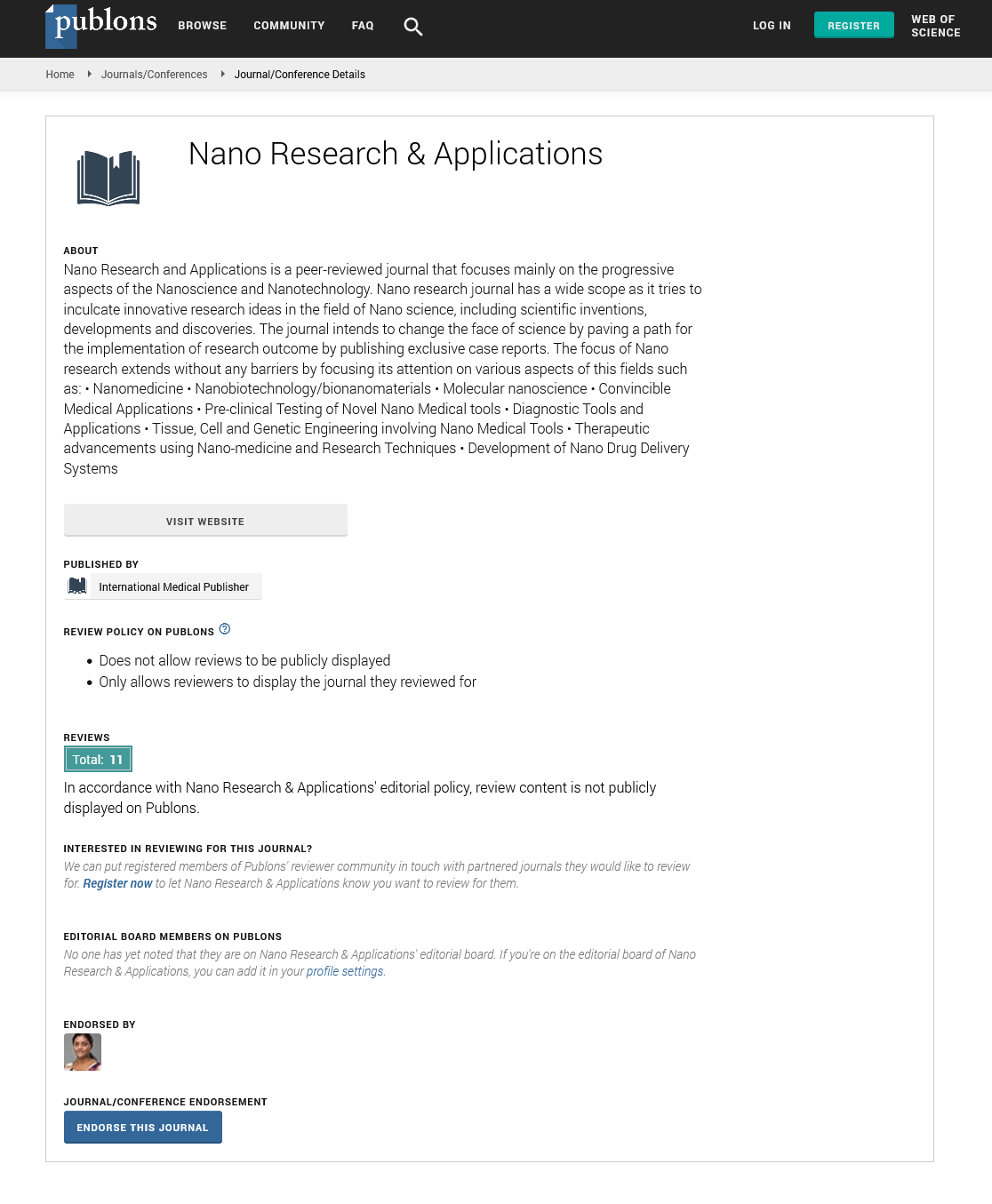ISSN : 2471-9838
Nano Research & Applications
Microfluidic droplets and materials
Virtual Meet on Nanotech Forum 2021
October 29-30, 2021 | Webinar
Liqiu Wang
The University of Hong Kong, Hong Kong
ScientificTracks Abstracts: Nano Res Appl
Abstract
Droplets of nanoliter and subnanoliter are useful in a wide range of applications, particularly when their size is uniform and controllable. Examples include biochemistry, biomedical engineering, food industry, pharmaceuticals, and material sciences. One example of their many fundamental medical applications is the therapeutic delivery system for delivering site-specific therapy to targeted organs in the body and as the carriers for newer therapeutic options. The size, the size distribution, the generation rate and the effective manipulation of droplets at a scale of nano and subnano liters are critical in all these applications. This lecture first makes an overview of microfluidic generation and manipulation of such droplets. The review of passive approaches for droplet generation focuses on the characteristics and mechanisms of breakup modes of droplet generation occurring in microfluidic cross-flow, co-flow, flow-focusing, and step emulsification configurations. The review of active approaches for droplet generation covers the state-of-the-art techniques employing either external forces from electrical, magnetic and centrifugal fields or methods of modifying intrinsic properties of flows or fluids such as velocity, viscosity, interfacial tension, channel wettability, and fluid density, with a focus on their implementations and actuation mechanisms. Also included is the contrast among different approaches of either passive or active nature.
Biography
Liqiu Wang received his PhD from University of Alberta, Canada, and is currently a professor in the Department of Mechanical Engineering, the University of Hong Kong (HKU). He also serves as the Director and the Chief Scientist for the Laboratory for Nanofluids and Thermal Engineering at Liqiu Wang The University of Hong Kong, Hong Kong the Zhejiang Institute of Research and Innovation (HKU-ZIRI), the University of Hong Kong. Prof. Wang has over 20 years of university experience in transport phenomena, materials, nanotechnology, biotechnology, energy & environment, thermal & power engineering, and mathematics, and 2 years of industry experience in technology and IP development/management/transfer as the Chief Scientist & the Global CTO. In addition to 6 authored scholarly monographs/books, 4 edited scholarly monographs, 8 book chapters, 66 keynote lectures at international conferences and over 120 invited lectures in universities/industries/organizations, Prof. Wang has published 410+ papers, many of which have been widely used by researchers all over the world, and been ranked amongst the top 1% of most-cited scientists according to Clarivate Analytics' Essential Science Indicator. Prof. Wang has also filed 30+ patents/software copyrights, and developed, with an international team consisting of about 100 scientists and engineers, a state-of-theart thermal control system for the Alpha Magnetic Spectrometer (AMS) on the International Space Station (ISS).
Google Scholar citation report
Citations : 387
Nano Research & Applications received 387 citations as per Google Scholar report
Nano Research & Applications peer review process verified at publons
Abstracted/Indexed in
- Google Scholar
- China National Knowledge Infrastructure (CNKI)
- Directory of Research Journal Indexing (DRJI)
- WorldCat
- Publons
- Secret Search Engine Labs
- Euro Pub
Open Access Journals
- Aquaculture & Veterinary Science
- Chemistry & Chemical Sciences
- Clinical Sciences
- Engineering
- General Science
- Genetics & Molecular Biology
- Health Care & Nursing
- Immunology & Microbiology
- Materials Science
- Mathematics & Physics
- Medical Sciences
- Neurology & Psychiatry
- Oncology & Cancer Science
- Pharmaceutical Sciences
